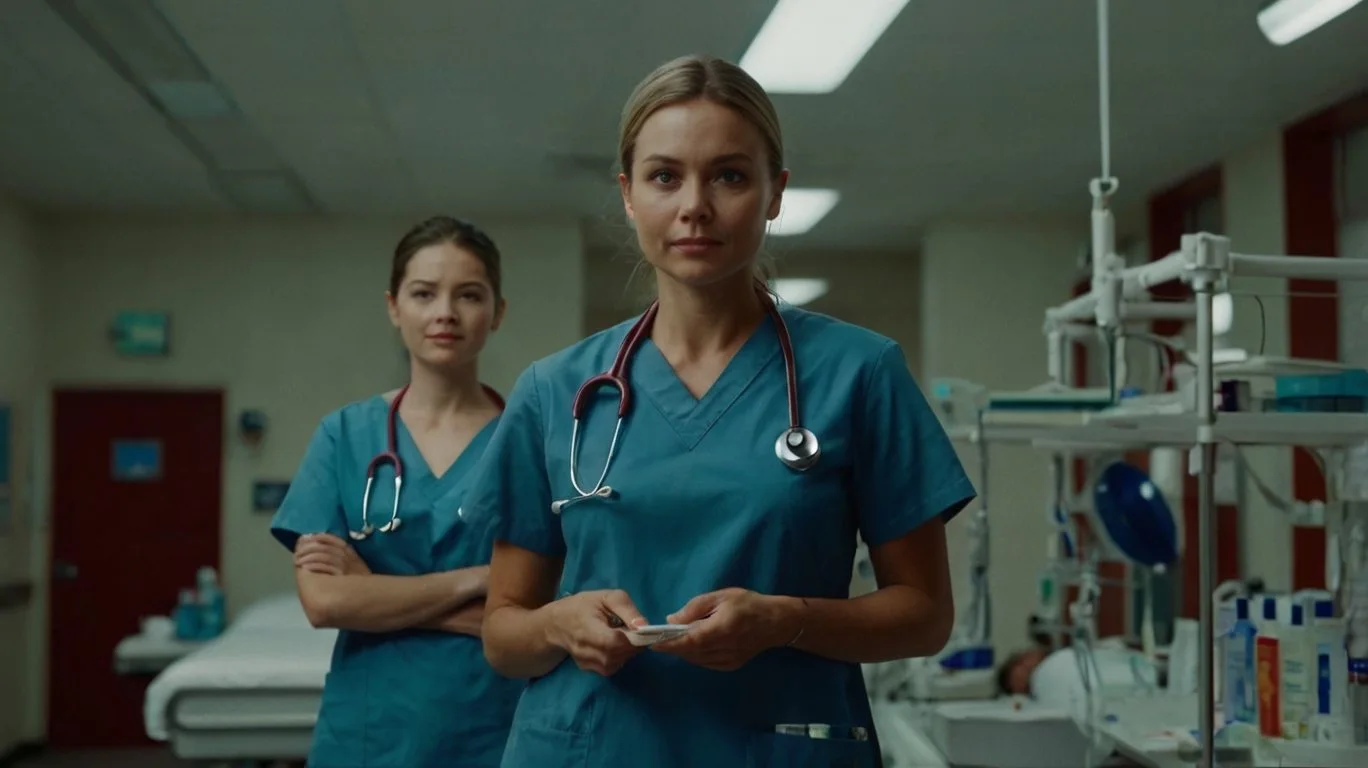When we are talking about nurses, the first thing that pops up in our minds is a nurse being at a patient’s bedside, whether maintaining the patient’s intravenous line or giving them a dose of medication. However, the nurse’s responsibilities go far beyond patient care—including educating their patients on health. It impacts not only the individual patient but also the community at large. Now, let us explore the role of nurses in health education and why it matters greatly in the current society.
Nurses as Educators: Life Beyond the Trolley
Nurses, the backbone of the healthcare industry, are directly responsible for patient education. Whether they provide a patient with a rare disease and translate it to layman’s understanding or train the community to avoid predetermined diseases, nurses are trained to be educators.
Health education is not only the process of providing people with information but also making the provided information easily understandable and feasible. Patients get discharged from doctors’ offices with mumbo jumbo circulating their brains. Nurses assist in breaking that down so that people understand how to take care of themselves after they have left the hospitals and clinics. This is even more so when people are expected to monitor multiple diseases or switch to healthier behaviours that decrease the risks of related diseases.
One of the things that makes nursing an interesting profession is that health education is integrated into each of the specialisations available. From mental health nursing to elderly nursing, nurses are always found in places where they impart knowledge and advise their clients on the right action.
Mental Health Nursing: Caring Education
Mental health nursing education is different from traditional education. An onus should be taken to ensure that patients suffering from mental ailments require more understanding and more time to listen. These nurses teach patients and their families how to manage their conditions and respond to stress, anxiety, and the necessity of taking prescribed medications.
Elderly Nursing: Delivering Education to a Sensitive Group
However, when it comes to elderly nursing, education is even more important to ensure that older adults stay healthy. Chronic diseases are widespread among elderly people, and they can also have poor health literacy. It is also important to mention that nurses who work with this group of population may need more time to ensure that their instructions are understood, and that’s why it is crucial to be detailed and use simple language.
It must be noted that the education process in this field is not limited to the patients themselves but includes their families and carers as well. It could be as simple as teaching a carer how to control their loved one’s diabetes or how to give drugs to an older patient. This is a clear example of how nursing impacts the patient and everyone who can be close to them.
The matrix of integrated health and social care
Nurses are often employed as both health and social care practitioners, which means that they deliver care that targets not only the disease or illness but also the factors that contribute to it. This is even more evident in areas like healthcare management, where nursing is involved in developing community health programs or managing chronic disease prevention programs.
In this case, health education is about individual patient treatment and making our communities healthier. For instance, nurses might offer workshops on obesity, physical activity, or smoking to a particular population. These education campaigns can have a multiplier effect by enhancing health status in the general population.
The Future of Nursing in Excellence and Advancements in Health Education
Nurses’ importance in educating the public and fellow citizens on health will continue to rise. Hence, nurses’ role in patient and social education will remain prominent with the advancement of care and diseases and the focus on disease prevention. That is why the future of healthcare depends on their capacities for new challenges and the incorporation of health education into practice.
Health Literacy and Technology Integration
Technology is one of the most promising and rapidly evolving trends in health education. Even with the COVID-19 pandemic, nurses used telehealth platforms to educate patients even if they had not been admitted to the hospital. This technology also helped nurses help patients who could not easily come to them because of disability, distance, or other problems.
However, in the contemporary world, mobile health applications and wearable gadgets promote patient education. These technologies can benefit nurses, as patients can share their stats in real-time, respond to questions, or even provide additional information about a condition. For instance, a nurse might teach patients to use a pedometer to track movement or a blood glucose meter to manage diabetes mellitus (DM). This continuous engagement can contribute to enhanced outcomes for the patient and increase the chances of successful health promotion.
Eradicating Health Disparities Through Education
The healthcare industry is facing a very big problem through health disparities. Such differences are mainly due to inequality in healthcare facilities, income, levels of education, and perceptions of different cultures. As one of the largest groups of healthcare professionals, nurses are equipped to discuss and combat these disparities through education.
For example, the nurse working in areas with limited access to healthcare may target dietary measures and routine checkups, handing out materials that the patients can understand and relate to. This means that by addressing the various social determinants of health, nurses can contribute towards narrowing the health equity gap to ensure that every patient gets the best chance to attain good health.
Advocacy and Policy Involvement
It also means that nurses advocate for policymaking as health educators. Here, the nurses can be involved in policy-making to change the vast systems determining patient treatment. This may include elevating the need for quality patient education, enhanced policies on prevention, or efforts toward national health literacy.
For instance, a nurse may fight for integration and promotion of mental health awareness and support in schools so that children can be attended to at an early stage. They could also strive to teach community health education campaigns for fragile groups and then empower the communities with information and tools to manage their health.
Continuing Professional Development
Last but not least, with the healthcare system’s ever-changing face, nurses must also update their skills and knowledge to cope with the changes. For a nurse to meet the required standard of practice today, CPD is crucial, as it will ensure that they can update their knowledge and education on the latest trends in the healthcare sector.
This may include participating in workshops, taking an online tutorial, or entering a university programme to earn a degree in nursing education. This way, nurses ensure they are informed on the latest trends, treatments, and preventive measures they will pass on to patients.
Final Thoughts: Education as Empowerment
Nursing education: the nurse’s position as a health educator is one of the best weapons of the health system. Through patient education, nurses enable patients, families, and communities to manage their health status, make proper choices, and improve their quality of life. As direct care providers, patient advocates, community organisers, and visionaries of advanced technologies, nurses continue to drive health promotion, education, and innovation.
It emphasises that nursing is about healing processes and showing people the way, explaining things to them, and even defending them at times. Nurses’ need for health education will be even more crucial as healthcare advances, making this aspect of nursing practice highly relevant and fulfilling.
Finally, nurses’ power to educate and empower their patients is the most valuable. It also makes them carers and promoters of health and quality of life. Therefore, as you advance in your nursing career, embrace your role as an educator and realise that education can turn lives around one patient at a time.





